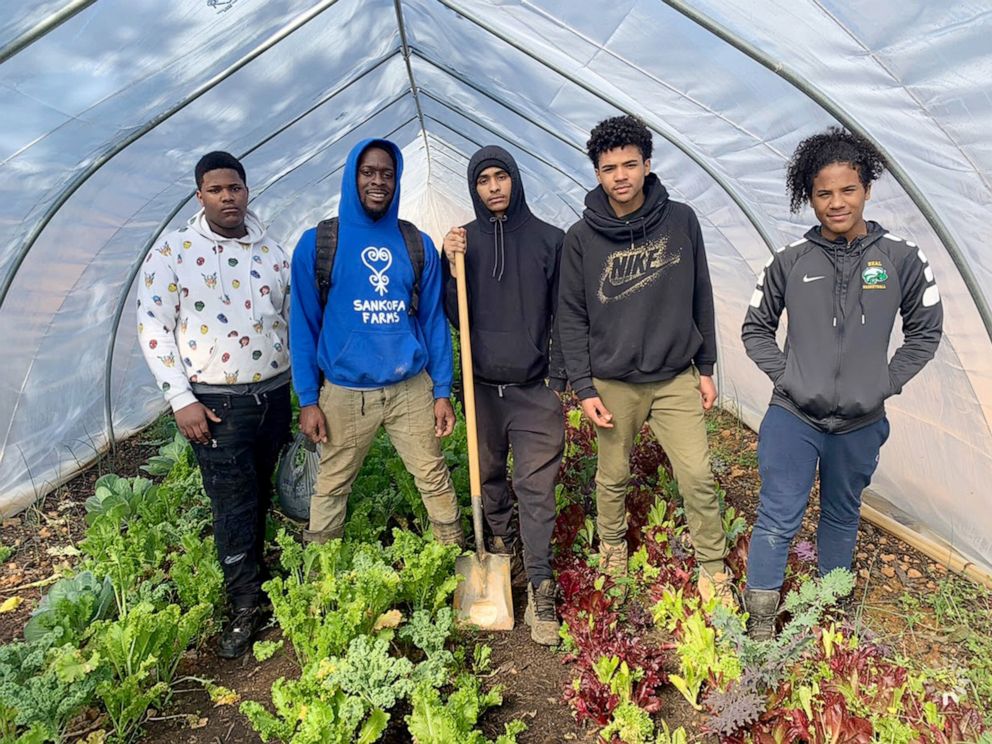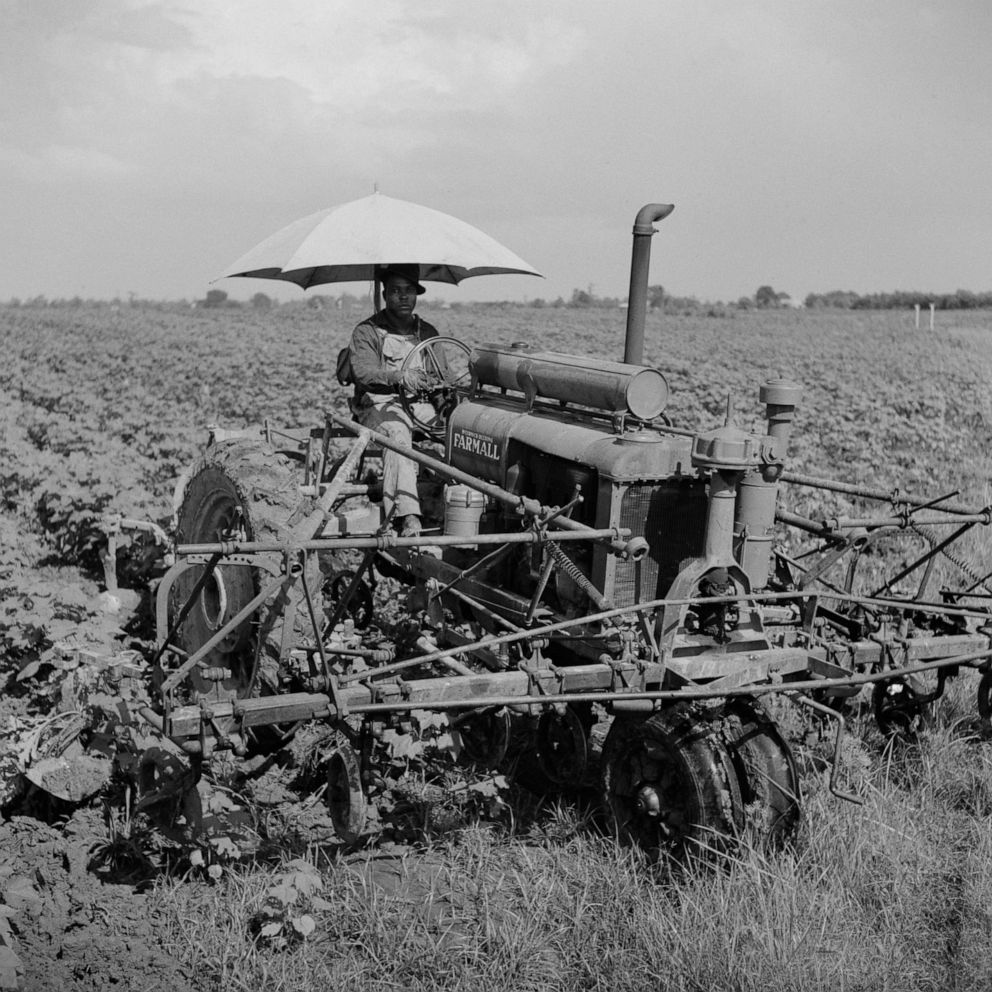Bill that could help Black farmers reclaim millions of acres 'a step in the right direction'
The new bill could "change the trajectory of farming legacies."
There was a time when Black-owned farms were booming -- before those farmers were stripped of tens of thousands of acres because of racist policies.
Today, most rural land in the U.S. is owned by white people. But now, finally, a new piece of legislation could help African Americans reclaim some of that acreage.
The Justice for Black Farmers Act, introduced earlier this month by Sen. Cory Booker, D-N.J., would allow Black farmers to reclaim up to 160 acres each, at no charge, through a Department of Agriculture system of land grants.
Kamal Bell, a 29-year-old farmer in Durham, North Carolina, said that such legislation is just the beginning of efforts necessary for certain farms to become sustainable and generate revenue.
"I think it's definitely a step in the right direction ... but we need to create pipelines for African Americans to be educated on a 21st-century farm," Bell told ABC News. "The production aspect of how to stay in business isn't taught to you. ... We learned this on our own and from other Black farmers we ended up meeting."
Bell is CEO of Sankofa Farms, a family farm that he purchased while saving up money in college. It aims to serve as a sustainable food source in urban communities, particularly so-called food deserts with few available options for fresh produce.

The group uses agriculture as a platform to teach youth key life lessons and embrace a visual, interactive experience, which includes training students how to operate drones in the fields. Additionally, the group shows students of color about the connection between STEM concepts and agriculture through the Agricultural Academy Sankofa Farms Agricultural Academy.
"If the students aren't educated to go into the field, we're just going to end up with the same system," Bell said.
Sankofa Farms is working with six students -- aged 11 to 18 -- some of whom say they've never seen a farmer that looks like them.
The group, which is grooming the students as managers and compensating them for their labor, goes far beyond teaching them how to grow food. The program also educates students on how to dress in a professional setting, speak in public and build transferable skills to use in their communities.
Bell, a father of two boys aged 4 and 6, said the business has blossomed into a "family affair." Not only does his son aspire to become a farmer one day, but his wife, Amber, also serves as community engagement director for the group and is among several of the group's certified beekeepers.
Bell, a doctoral student, obtained a bachelor's degree in animal sciences and a master's in agricultural teacher education from North Carolina Agricultural and Technical State University -- the nation's largest historically Black college or university.
He said that he's witnessed barriers entering the industry firsthand and is living his purpose by striving to "break generational curses."
The story of how nearly 1 million Black families were stripped of their farms, and therefore robbed of their hard-earned generational wealth, isn't a story often told when discussing U.S. history.
From the 1860s to the 1920s, dozens of towns violently expelled entire Black communities and forced them to flee their homes using tactics that included racist mobs. Many stories of Black residents, particularly those living in the South, were detailed in the 2007 award-winning documentary "BANISHED."

At their peak in 1920, there were over 949,000 Black farmers in America, according to a 2017 report released by the U.S. Department of Agriculture. That number has now plummeted to roughly 45,000 Black-owned farms.
Now, Black farm owners makeup a mere 1.3% of the country’s 3.4 million total farmers. In comparison, approximately 95% of rural land across the country is currently owned by white farmers.
Booker told Mother Jones that the bill is an effort to help mount a long-overdue federal effort to reverse the "destructive forces that were unleashed upon Black farmers over the past century."
The bill, co-sponsored by Sens. Elizabeth Warren, D-Mass., and Kirsten Gillibrand, D-N.Y., would become a sevenfold expansion for African American farmers, transferring to them up to 32 million acres.
Kenrett Jefferson-Moore, chairperson of the Committee on the Opportunities and Status of Blacks in Agricultural Economics at North Carolina Agricultural and Technical State University, said that this bill is a great step toward justice for Black farmers.
"African American farmers have had to fight for so much over the years -- information, rights, land access, capital access and so on," Jefferson-Moore told ABC News.

The 46-year-old mom and wife also echoes the fact that knowledge is among the key ways to open the door for those interested in the field.
"Education is key for farmers," Jefferson-Moore added. "If we can ensure that African American farmers are gaining access to information to preserve their hard work and effort, it could change the trajectory of their farming legacies."
Jefferson-Moore, who grew up in Doyline, Louisiana, was exposed to the world of agriculture as a 5-year-old by her father, who was a school teacher, tax assessor and part-time farmer.
"It brings tears to my eyes to think of how this would change opportunities for African American farmers," Jefferson-Moore said, "especially my father."




